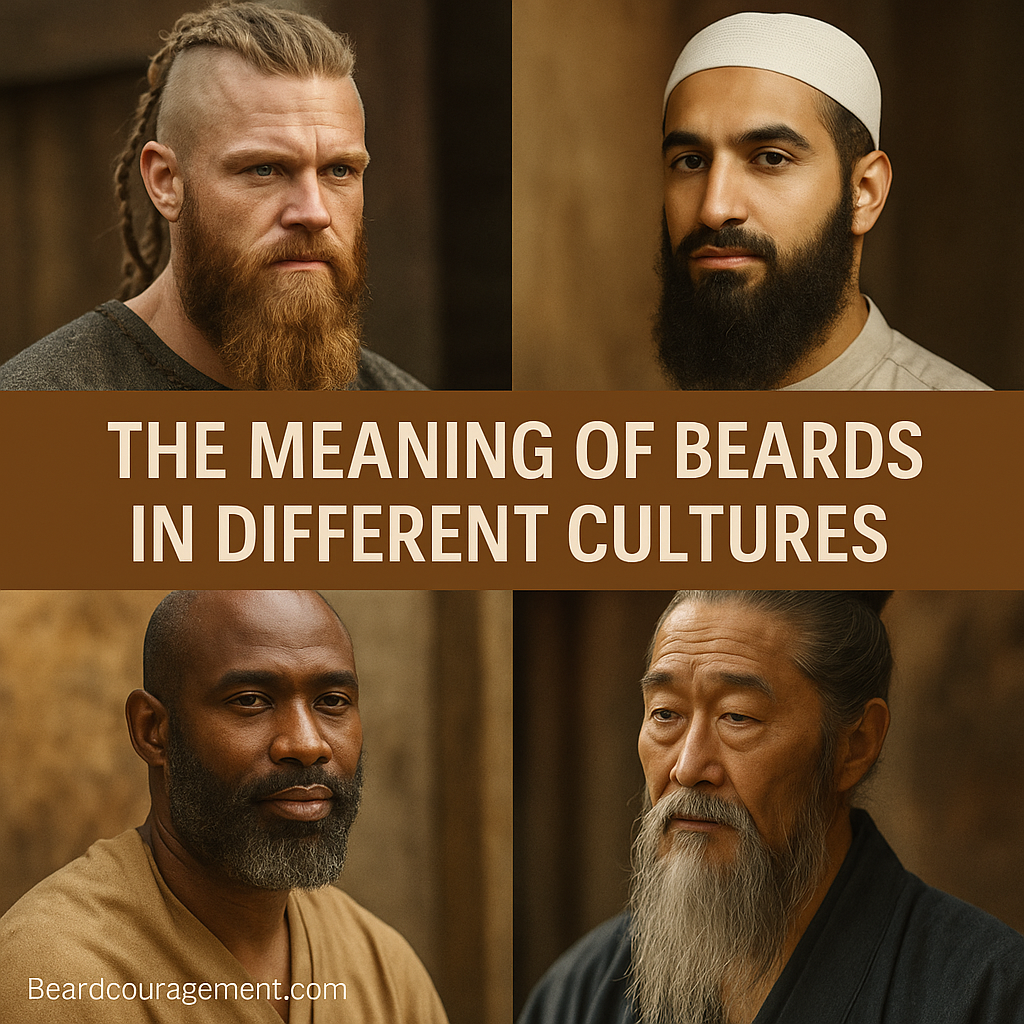
From ancient philosophers to modern icons, the beard has always meant more than just facial hair. Across history and around the world, beards have carried deep cultural, spiritual, and social meaning — symbolizing wisdom, strength, maturity, and individuality.
How a culture views the beard often says as much about its values as it does about its people. Let’s take a journey through time and geography to explore what beards have meant in different parts of the world.
Beards in Ancient Civilizations
Egypt: The Mark of Power and Divinity
In ancient Egypt, beards were a symbol of royalty and godliness. Pharaohs — including female rulers like Hatshepsut — often wore false beards made of gold or metal, known as postiches, to signify divine authority.
Clean-shaven faces were common among ordinary Egyptians due to the desert heat, but the ceremonial beard was a sacred emblem of leadership and immortality.
Mesopotamia: Order and Status
The civilizations of ancient Mesopotamia, such as the Sumerians and Assyrians, viewed beards as symbols of honor, wisdom, and masculinity.
Men styled their beards meticulously, often curling or braiding them into elaborate patterns using oils and tools. The more intricate the beard, the higher the man’s status in society.
Greece and Rome: Wisdom vs. Discipline
In ancient Greece, philosophers like Socrates and Plato wore beards as a sign of intellect and contemplation. To be bearded was to be thoughtful and wise.
But when Rome rose to power, the trend shifted. Romans, valuing order and discipline, preferred the clean-shaven look — introduced by Emperor Hadrian’s barbers. Shaving became a daily ritual, symbolizing control and modernity.
Beards, in this transition, came to represent rebellion — a theme that would reappear throughout history.
Beards in Eastern Traditions
India: Spirituality and Respect
In Indian culture, the beard has long been linked to spiritual growth, wisdom, and honor. Hindu sages and Sikh gurus are often depicted with long, flowing beards — expressions of purity and devotion.
For Sikhs, maintaining uncut hair (kesh) is a sacred act that reflects respect for God’s natural design. The beard, in this context, is both spiritual and symbolic — a testament to faith and identity.
China: Dignity and Virtue
In Chinese history, a full beard was associated with virtue, masculinity, and wisdom. Scholars and elders often grew long, graceful beards that reflected experience and honor.
However, during certain dynasties, especially under Confucian influence, restraint was key — moderation in appearance mirrored moderation in behavior. A neatly kept beard conveyed inner balance and moral strength.
The Middle East: Faith and Devotion
In Islamic culture, the beard carries deep religious significance. Many Muslim men grow beards as a reflection of faith, humility, and adherence to the teachings of the Prophet Muhammad.
Beyond religion, the beard has historically been a symbol of dignity and manhood throughout the Arab world. A well-groomed beard is often seen as a mark of self-respect and cultural pride.
Beards in Western History
Medieval Europe: Honor and Nobility
During the Middle Ages, knights and noblemen wore beards as signs of honor, courage, and virility. A man’s beard symbolized his readiness for battle and his maturity as a warrior.
To touch another man’s beard without consent was considered an insult — a challenge to both his status and manhood.
The Victorian Era: Morality and Masculinity
By the 19th century, beards had made a strong comeback in Western Europe. In Victorian Britain, they symbolized discipline, respectability, and moral strength.
The Industrial Revolution brought hard labor and harsh conditions — and beards became associated with rugged perseverance and health.
Even prominent figures like Charles Darwin and Abraham Lincoln helped shape the beard’s image as a mark of intellect, integrity, and character.
Beards in African Traditions
Across parts of Africa, beard traditions vary widely. In some cultures, facial hair is seen as a sign of wisdom and seniority, while in others, smooth skin signifies youth and vitality.
For example, among certain North African and Ethiopian groups, beards reflect religious devotion and social maturity, while in Sub-Saharan regions, cultural preferences for beards may be more modest or symbolic.
Regardless of geography, the beard consistently represents identity and belonging — shaped by community and history.
Beards in Modern Culture
In the 20th century, the meaning of beards shifted again — from rebellion to self-expression.
- 1960s–70s: Beards became symbols of counterculture and freedom, worn by artists, thinkers, and activists.
- 1980s–90s: The clean-shaven look dominated as “professionalism” became linked to smooth faces.
- 2000s onward: The beard made a massive comeback, blending tradition with modern fashion.
Today, the beard is a universal emblem of individuality. From corporate leaders to creatives, it’s a symbol of authenticity, confidence, and style.
What once divided societies — clean-shaven vs. bearded — now unites them under the banner of self-expression.
The Universal Meaning of the Beard
Across every culture, one theme remains consistent: the beard is a reflection of character.
Whether it represents faith, wisdom, strength, or freedom, the beard tells a story of who we are — and what we value.
It transcends borders, eras, and trends. From the temples of India to the streets of London, from the deserts of Arabia to the mountains of Norway, the beard endures as one of humanity’s oldest and most meaningful forms of self-expression.
Final Thoughts
The meaning of beards may differ from culture to culture, but their purpose remains the same — to express identity, pride, and individuality.
Every beard, whether shaped, braided, or wild, carries a history — not just of the man who wears it, but of the countless men before him who did the same.
Beards tell the story of humanity — one strand at a time.
